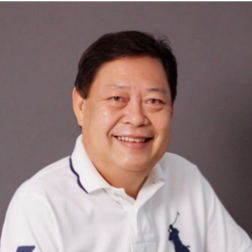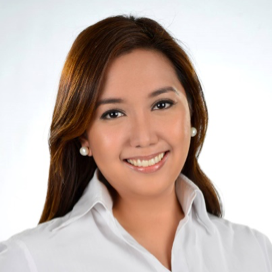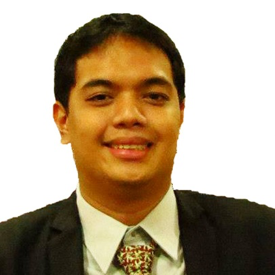The University of St. La Salle College of Law is a premier law school in the Philippines that has been producing top-notch lawyers and notable personalities in various legal fields. College of Law has consistently maintained its reputation as one of the leading law schools in the country, providing a quality education that combines academic excellence with practical training. The College of Law is committed to producing highly competent and ethical lawyers who are equipped with the knowledge, skills, and values necessary to become successful legal practitioners and agents of positive social change.
Brief History of the College of Law
The College of Law was established in June 1993, receiving its authority to operate a Bachelor of Law course and curriculum from the Department of Education, Culture, and Sports. This authority was granted through Government Permit (R-VI) No. A-31, S. 1993, issued on April 8, 1993. The law school continues to operate under Government Recognition No. C-R-05, S. 1996, which the Commission on Higher Education issued on April 29, 1996.
In 2011, aiming to enhance the law school's standards and competitive edge, the College transitioned from a Bachelor of Laws curriculum to the current Juris Doctor with Thesis Law Program.
The law school was originally inspired by the vision of USLS President in 1993, Br. Rolando R. Dizon FSC. It began with a faculty corps of only ten (10) professors, led by the first Law Dean, Justice Juan M. Hagad, a former Deputy Ombudsman for the Visayas and third-place finisher in the Bar Examinations. His Associate Dean, who later succeeded him, was Dean Raymundo T. Pandan, Jr. Dean Pandan led the law school for twelve years, from 1998 to 2010.
The inaugural class graduated in 1997, with Atty. Ralph A. Sarmiento earning a tenth-place finish in that year's Bar Examinations. In Academic Year (A.Y.) 2010-2011, as Dean of the College of Law, Atty. Sarmiento proposed transitioning the curriculum from Bachelor of Laws to Juris Doctor with Thesis Program, a change implemented in A.Y. 2011-2012. He was succeeded by an alumna of the College of Law, Atty. Rosanne Juliana R. Gonzaga, who became the fourth (4th) Dean, serving the College for six (6) years from 2017-2023.
The law school has earned honors with three Top Ten Bar Examination placers: Dean Ralph A. Sarmiento, who placed tenth in the 1997 Bar Exams; Atty. Mark John H. Simondo, who took first place in the 2017 Bar Exams; and Atty. Bebelan A. Madera, who placed tenth in the 2019 Bar Exams. Most recently, in the 2020-2021 Bar Exams, the school was again graced with two exemplary examinees: Atty. Kevin Daniel L. Ramos and Atty. Anya Pauline Y. Yusay.
Mission & Vision
Mission
The College of Law is dedicated to the holistic formation of its law students by integrating liberal Christian education with professional competence. We encourage the cultivation of social leadership skills and innovation in legal capacities, all aimed at national development and community welfare. Our mission includes a strong commitment to serve the poor and marginalized, driven by an unwavering passion for justice.
Vision
The College of Law aspires to be a distinguished venue for legal education in the Philippines and beyond. Our focus remains on the formation of ethically responsible and competent legal professionals who possess a passion for justice, especially as it relates to serving underprivileged communities.
Core Values & Objectives
Core Values
In line with our mission and vision, the College of Law adheres to the Lasallian core values:
- Spirit of Faith: Upholding moral and ethical standards in the practice and study of law.
- Zeal for Service: A committed service to the community, particularly to the poor and marginalized, grounded in principles of justice.
- Communion in Mission: A collective pursuit of educational and social objectives, both within the College and through external partnerships.
Objectives
To deliver an educational experience aimed at forming socially responsible Christians, critical thinkers, and effective communicators. To offer a contemporary law program that fosters higher learning skills and professional competence aligned with current demands. To facilitate a learning environment conducive to a deep understanding of local and global issues, encouraging students to engage in social innovation and transformation. To prioritize the formation of individuals deeply rooted in Christian values, followed by their development into competent legal practitioners.
Juris Doctor (J.D.) Program
The Juris Doctor (J.D.) Program is a professional degree requiring the completion of a four-year college course as a prerequisite to admission in the law school. The curriculum covers the core Bar Examination subjects required under the Rules of Court of the Philippines. Moreover, the program further develops focus on specialized fields of law by requiring certified law student practitioners to complete the clinical legal education and legal aid programs, the completion of relevant elective subject courses, and the submission and defense of a J.D. legal article or thesis.
The College of Law offers the degree of Juris Doctor Thesis Program which is patterned after the Revised Model Law Curriculum (RMLC) mandated by the Legal Education Board. With this enriched law curriculum, the College of Law is able to adequately prepare its students for the demands of modern law practice in the Philippines and abroad.
Learning Outcomes
As part of our shift toward an outcomes-based education model, we have identified specific learning outcomes that our Juris Doctor program aims to achieve. These outcomes encompass cognitive skills, practical abilities, ethical standards, and Lasallian values, ensuring that our graduates are not only proficient in the practice of law but also committed to serving society responsibly. Below are the expected learning outcomes for graduates of our Juris Doctor program.
- Understanding of Legal Principles: Acquire comprehensive knowledge of key areas of law including constitutional, civil, and international law.
- Analytical Competence: Develop the ability to critically evaluate complex legal situations, formulate arguments, and propose solutions.
- Research Proficiency: Demonstrate the capability to conduct ethical and in-depth legal research using various resources.
- Written Communication: Exhibit proficiency in drafting professional legal documents such as briefs, contracts, and scholarly articles.
- Oral Advocacy: Effectively articulate and defend legal positions in a variety of forums, including courtrooms and academic settings.
- Technological Literacy: Utilize technology relevant to modern legal practice, including legal research databases and case management systems.
- Professional Ethics: Uphold ethical standards and understand the moral responsibilities inherent in legal practice.
- Client Management: Build and maintain professional client relationships, respecting their rights and addressing their legal needs.
- Social Responsibility: Engage in service to underserved communities and act as advocates for social justice.
- Lasallian Values: Internalize and demonstrate the core Lasallian principles of faith, service, and community collaboration.
By achieving these learning outcomes, graduates of the USLS Juris Doctor program will be equipped to meet the diverse challenges of the legal profession, while upholding the institution's core values and commitments.

Legal Apprenticeship Program
As part of our shift toward an outcomes-based education model, we have identified specific learning outcomes that our Juris Doctor program aims to achieve. These outcomes encompass cognitive skills, practical abilities, ethical standards, and Lasallian values, ensuring that our graduates are not only proficient in the practice of law but also committed to serving society responsibly. Below are the expected learning outcomes for graduates of our Juris Doctor program.

Bar Operations Program
The College of Law conducts its yearly Bar Operations in Manila to help support its Bar examinees as well as to provide the law student volunteers with a first-hand experience designed to adequately prepare for their Bar Examinations. Bar Operations is a support system that focuses its efforts prior to and during the Bar Examinations.

Legal Aid Program
In partnership with generous sponsors, benefactors, and USLS partners: Balayan, ONTOP, Law Faculty, and Alumni, the College of Law provides free legal advice and counseling to indigent litigants.

Moot Court and Debate Program
Organized as the USLS Law AniMoot Society (LAMS), the program envisions to provide opportunities for students to participate in various invitational national and international law moot court and debate competitions.
The USLS-LAMS aspires to produce not only law students who are proficient in writing and speaking about the law, but also future lawyers who strongly advocate the rule of international law. Thus, the society aims to train and provide a means for multi-disciplined legal advocacies by developing skills in both oral and written argumentation and articulation in the areas of national and international environmental law, international criminal law, international law, human rights, peaceful settlement of controversies and national and international concerns and current affairs.

Human Rights and Community Partnership
In partnership with Balayan, ONTOP, Law Faculty, Alumni, and student volunteers, the College of Law conducts seminars and workshops on Human Rights Law with a goal to reach out to vulnerable and marginalized communities and to further develop a more reflective professional education and acquaint law students with human rights advocacy and capacity building.

Student Council
The College of Law Student Council is the official body which represents the law student organization and is empowered to exercise the rights and carry out the duties and responsibilities embodied in the College of Law Student Organization Constitution. The Student Council promotes student welfare and development. Furthermore, it strives to maintain a harmonious working relationship with the University Administration and external partners in order to fulfill its role as servants of the law students.

Clinical Legal Education Program (CLEP)
The College of Law acknowledges the need for accessible legal services within the community it serves and recognizes its duty to further develop and enhance the law students’ vital role in contributing to the administration of justice. Thus, the Law Center brings law student practitioners at the forefront of learning and experience by serving in government or the public sector thereby bridging the gap between theory and practice.
The Clinical Legal Education Program (CLEP) conducted through the USLS Law Center aims to encourage students develop practical application of legal concepts and theories in the real world by way of supervised experiential practice. Its goal is to provide accessible legal services within the community it serves and recognizes its duty to further develop and enhance the law students’ vital role in contributing to the administration of justice and equality in the eyes of the law as a means for social change and transformation.
Furthermore, the law center promotes and conducts seminars and workshops on Human Rights, Environmental Protection, Developmental Law Advocacy and Gender and Development issues and concerns. Through its clinical legal aid program, it hopes to build awareness in different methods of popular education for human rights advocacy and capacity building.

Sports Organization
The College of Law promotes and encourages outdoor and indoor sports activities and events. Thus, students with special skills and interests are given an opportunity where they are able to converge and express themselves through non-academic endeavors which ensure healthy minds and bodies. The active participation of the sports teams in all events are faculty supervised and derive support from the Law Student Council.

Law Commission on Elections
The right to vote for the officers of the Law Student Council who represent the student body is sacred and shall be exercised by all its members. The College of Law Commission on Elections (COMELEC for brevity) is the official arm of the Law Student Council that carries out the responsibility of ensuring the secrecy and sanctity of the ballot cast by each law student. The COMELEC convenes once or as many times as necessary towards the latter part of each academic year to efficiently organize and supervise the process of electing student officials.
Law Journal

The University of St. La Salle College of Law - Law Journal is a scholarly platform where ideas and legal insights from law students and professors thrive. Since its inception in 2014, the USLS Law Journal has published academic journals enriched with the discourse on the development of laws, jurisprudence, and comparative law articles. Its magazine publication counterpart, known as "The Advocate," has also prospered in covering updates on the various activities of the College of Law. The Law Journal continues to be an avenue for the enhancement of legal thought and research. Its annual publication is a beacon of the Lasallian core values and a true testament of a progressive and evolving legal education.
The official law student publication provides an avenue for discourse on legal theories and principles, a place for sharing relevant legal updates, jurisprudence, and feature articles of interest of the faculty and students as well as a medium of expression and sharing of common interests and concerns of the law school.
 USLS College of Law - Law Journal
USLS College of Law - Law Journal
Academic Officers
Atty. Rhodora P. Lo
Academic Adviser
 r.lo@usls.edu.ph
r.lo@usls.edu.ph
Ms. Mariel B. Panganiban
Law Librarian
 m.panganiban@usls.edu.ph
m.panganiban@usls.edu.ph
Law Faculty Corps
- Atty. Ralph A. Sarmiento (Dean, 2010-2016 & 2023-present)
- Atty. Raymundo T. Pandan, Jr. (Dean, 1998-2010)
- Atty. Rosanne Juliana R. Gonzaga (Dean, 2017-2023)
- Atty. Rhodora P. Lo (Academic Adviser)
- Judge Fernand A. Castro
- Judge Ana Celeste P. Bernad
- Judge Michael Hanz D. Villaster
- USEC Jocelle Batapa Sigue
- Prosec. Atty. Ma. Theresa B. Ditching
- Prosec. Atty. Elnathan C. Lim
- Prosec. Johnnil Fatima B. Acero
- Atty. Alexander N. Mirano
- Atty. Benjamin L. Hilado
- Atty. Narciso F. Javelosa, III
- Atty. Maria Corazon L. Katalbas
- Atty. Pearl R. Montesino
- Atty. Ramon Antonio D. Pandan
- Atty. Jacob T. Ariño
- Atty. Wilfred Ramon M. Peñalosa
- Atty. Maki Angel O. Ascalon
- Atty. Ma. Jezzel C. Rasimo
- Atty. Reuben Mikhail P. Sabig
- Atty. Fortune Mae C. Cordova
- Atty. Lenon Jay A. Corgos
- Atty. Roev Bryl T. Sobrejuanite
- Atty. Jose Fernando B. Cuenca
- Atty. Asia Canieso Sproten
- Atty. Daniel R. Del Rosario, III
- Atty. Salud Milagros C. Villanueva
- Atty. Mac Lord O. Zafra
- Atty. Carlos M. Auxtero III
- Atty. Anya Pauline Y. Yusay
- Dr. Lorenzo F. Cabalfin, M.D.
Notable Alumni
 | Atty. Jocelle Batapa-Sigue
Juris Doctor Class of 1997
DICT Undersecretary
Department of Information & Communications Technology |
 | Atty. Emilio L. Yulo III
Juris Doctor Class of 1997
Representative, 5th Congressional District, Negros Occ.
Former Board Member, Sugar Regulatory Commission (SRA) |
 | Atty. Mercedes K. Alvarez
Juris Doctor Class of 2007
Representative, 6th Congressional District, Negros Occ.
Former Deputy House Speaker, House of Representatives |
 | Atty. Mark John Simondo
Juris Doctor Class of 2017
No. 1 Bar Topnotcher, 2017 Bar Exams |
Contact Info
 432-1189 | 434-6100 local 157.
432-1189 | 434-6100 local 157.
 USLS College of Law
USLS College of Law
 law@usls.edu.ph
law@usls.edu.ph
APPLY NOW